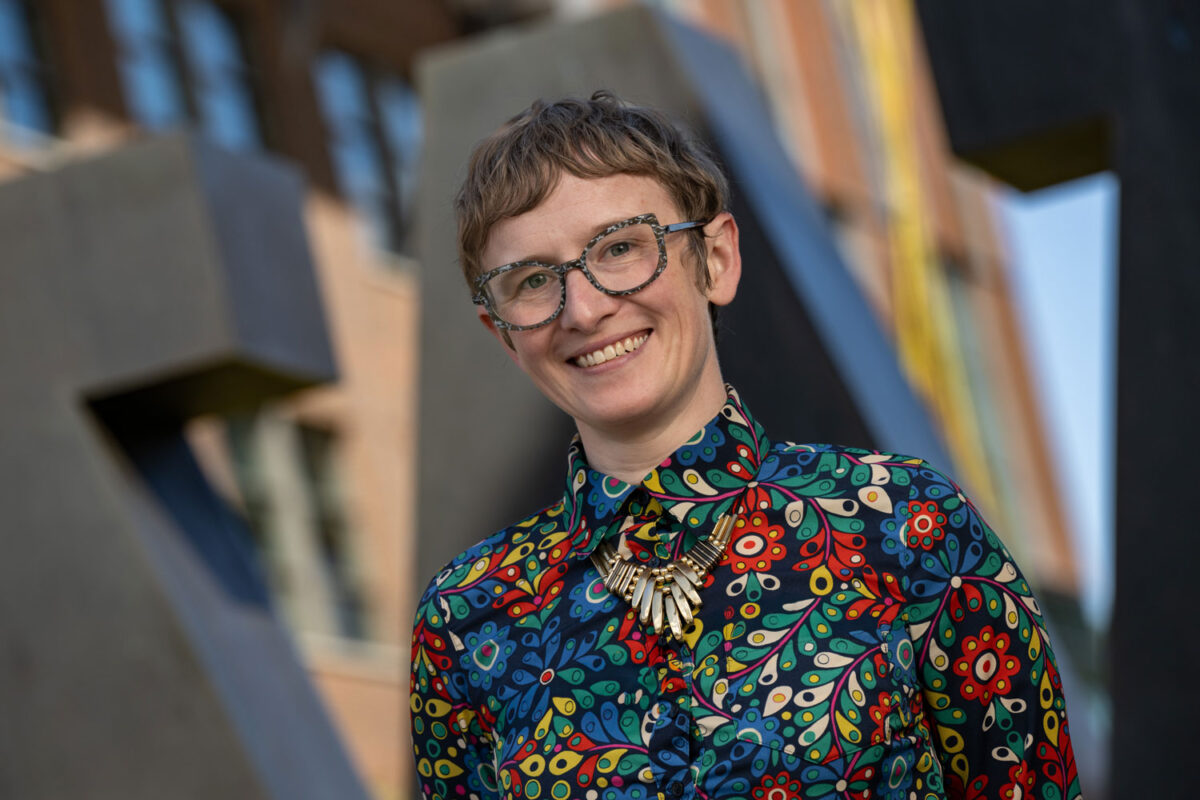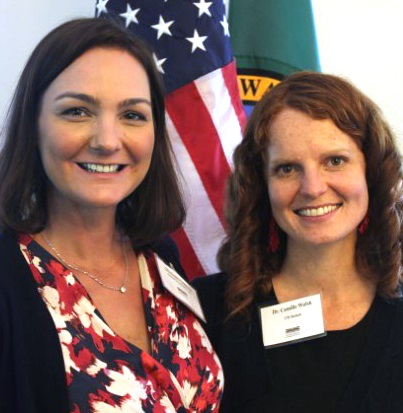
By Douglas Esser
A funny thing happens in the Bothell Youth Court. The “ultimate jury of your peers” gains from the process as much as the teens who come in with traffic tickets.
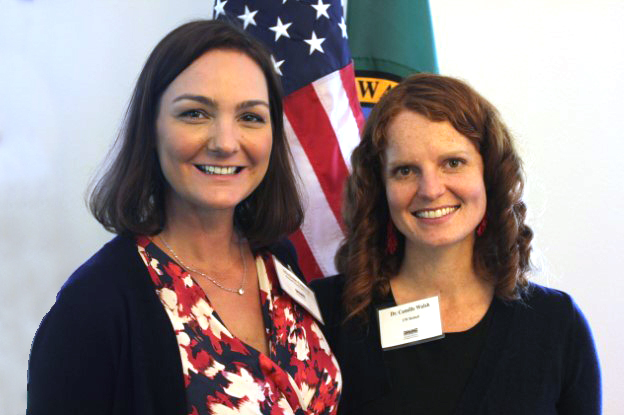
Photo: Judge Michelle Gehlsen, left, with Camille Walsh
High school students who run the program are developing leadership skills. University of Washington Bothell students who mentor the high schoolers enhance their management skills and gain experience in restorative justice, says Camille Walsh, an assistant professor in the School of Interdisciplinary Arts and Sciences who helped start the program.
And, the offenders get more than a day in court. They have a sympathetic audience to hear their story and craft a unique sentence, says Michelle Gehlsen, the Bothell Municipal Court judge who co-founded the youth court with Walsh in 2013.
Over three years the court has dispensed restorative justice to more than 60 offenders or respondents, as they are called. In the same time, about 60 high school students and 60 UW Bothell students have played various roles in the program. In the spring quarter, about 20 high school students and 11 University students are involved, says Walsh.
A number of them are looking at possible careers in law and justice. The University students mentor the high school students by modeling court behavior in training sessions.
“It’s truly rewarding to watch them enact what we’ve taught them in court,” says Jack Neukirchen, a law, economics and public policy major.
“I can see a lot of growth in the high school students themselves. Some of them are more able to think on their feet,” he says.
“The big thing I’ve seen is confidence in public speaking,” adds Neukirchen, who says that’s a skill he’s improved himself and expects to use in business after he graduates next year.
When the high school students head off to college, “They’re taking with them a set of skills in terms of leadership, in terms of understanding how to work with a wide range of people from different backgrounds and coming to an agreement that benefits everybody involved,” says Walsh.
It’s impossible to say for sure whether the youth court is averting crashes and saving lives, but Gehlsen is certain the program is “giving leaders in our community a forum to advance.”
Students who may enter uncomfortable and shy gain confidence.
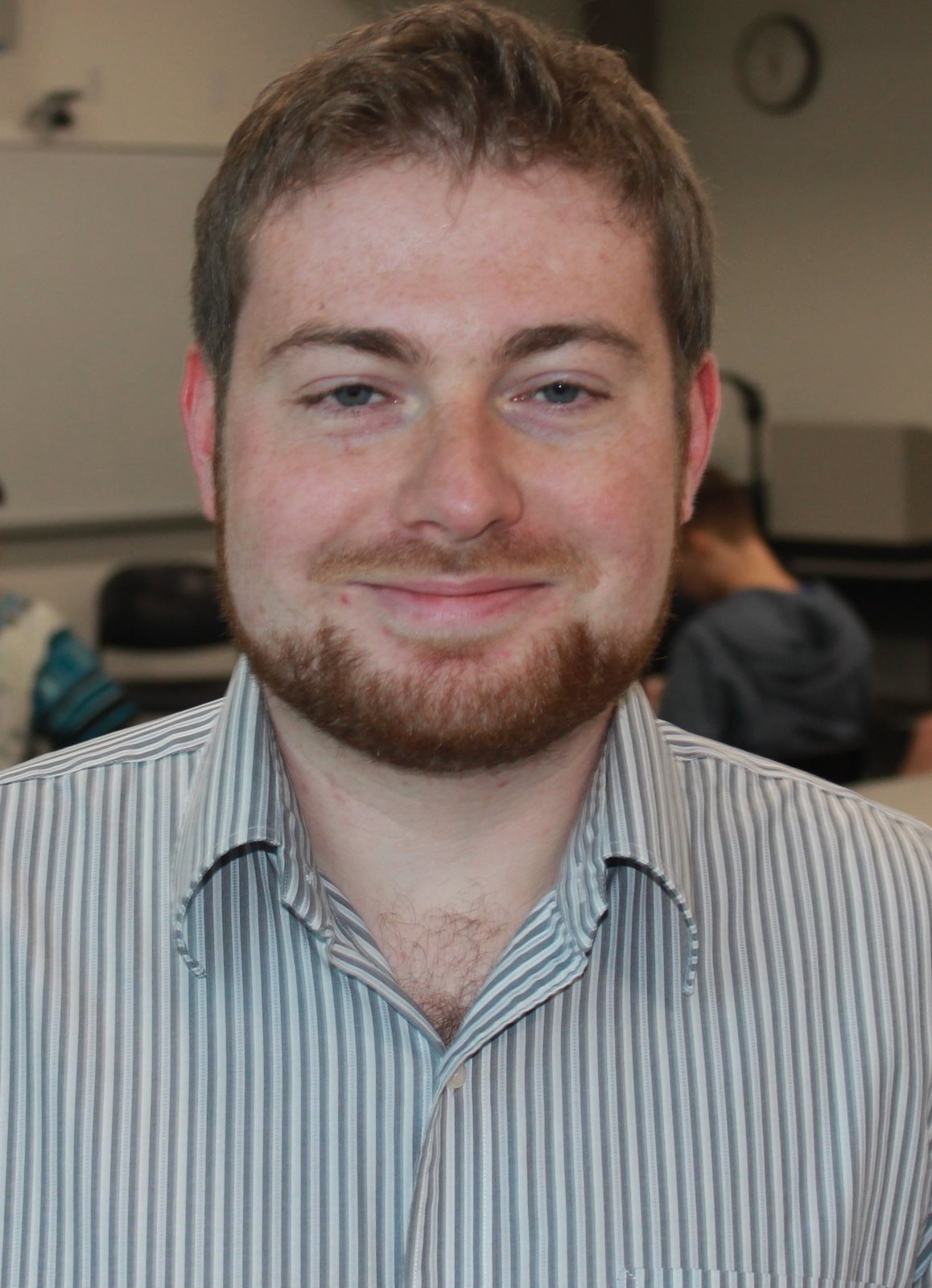
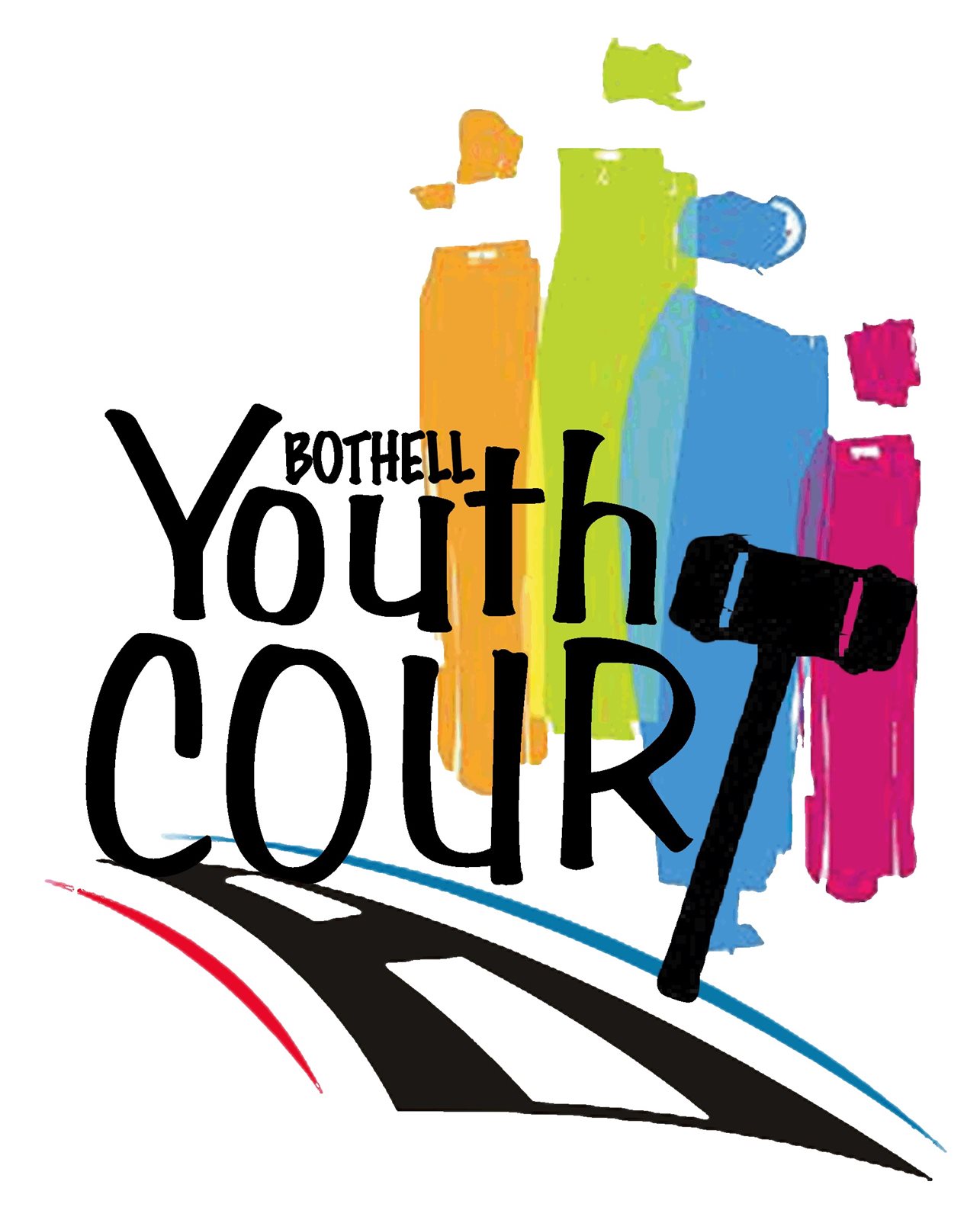
The students decided on their own to include the offenders in the disposition of their case. Each one is tailored to the individual and may involve community service, research, presentations or a letter of apology. Drivers also might be directed to learn more about how to operate a car, find alternative transportation or be a better role model for a younger sibling, says Walsh.
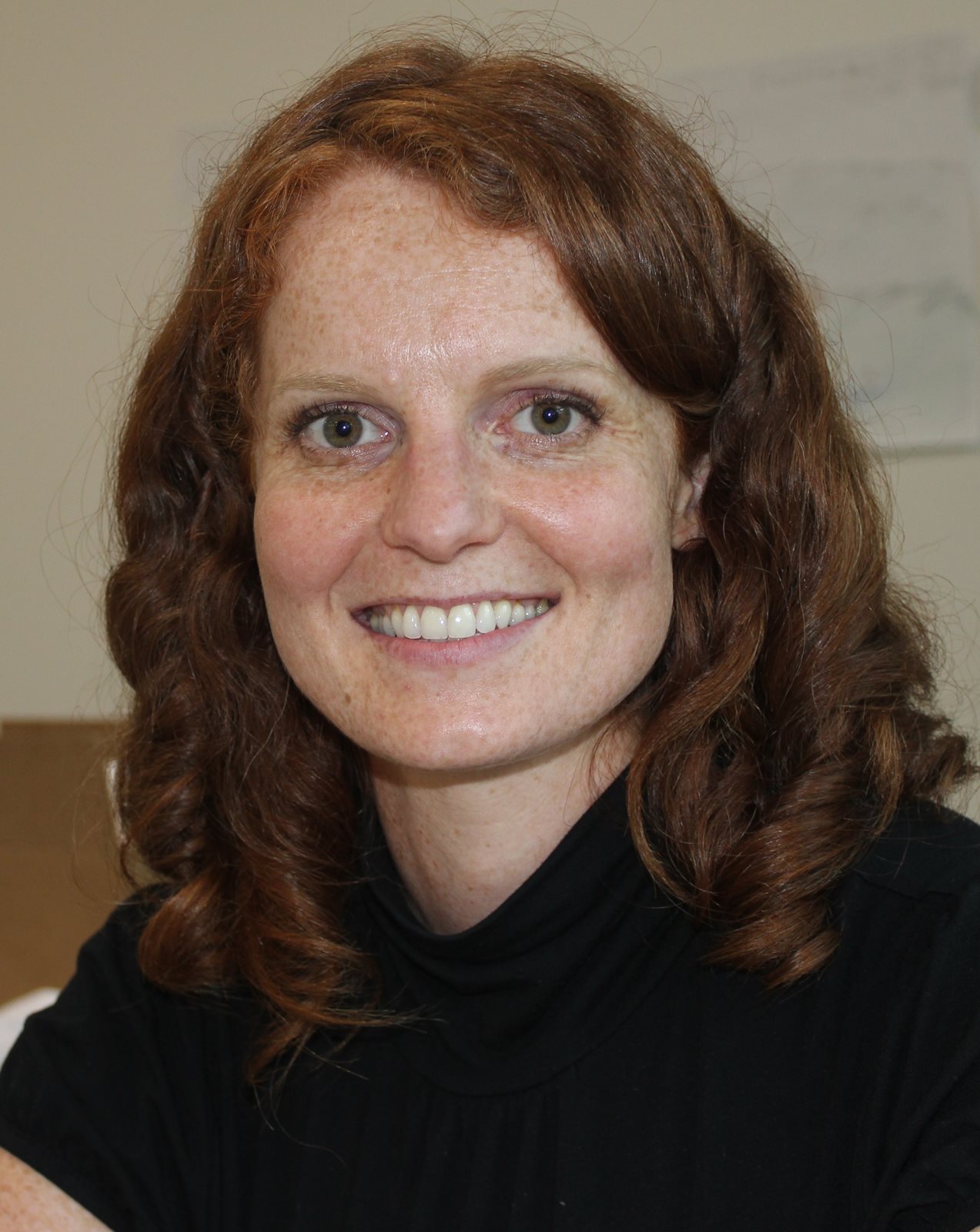
“We’re seeing them come through restorative justice process with their peers who talk with them, work with them, understand their story, what it was that led to that infraction and what are the skills to prevent that from happening in the future,” says Walsh.
Restorative justice addresses the harm that was done by restoring the community, including the offender. Everyone sits in a circle and has an equal say. Unlike criminal courts, restorative justice is not adversarial or aimed at retribution.
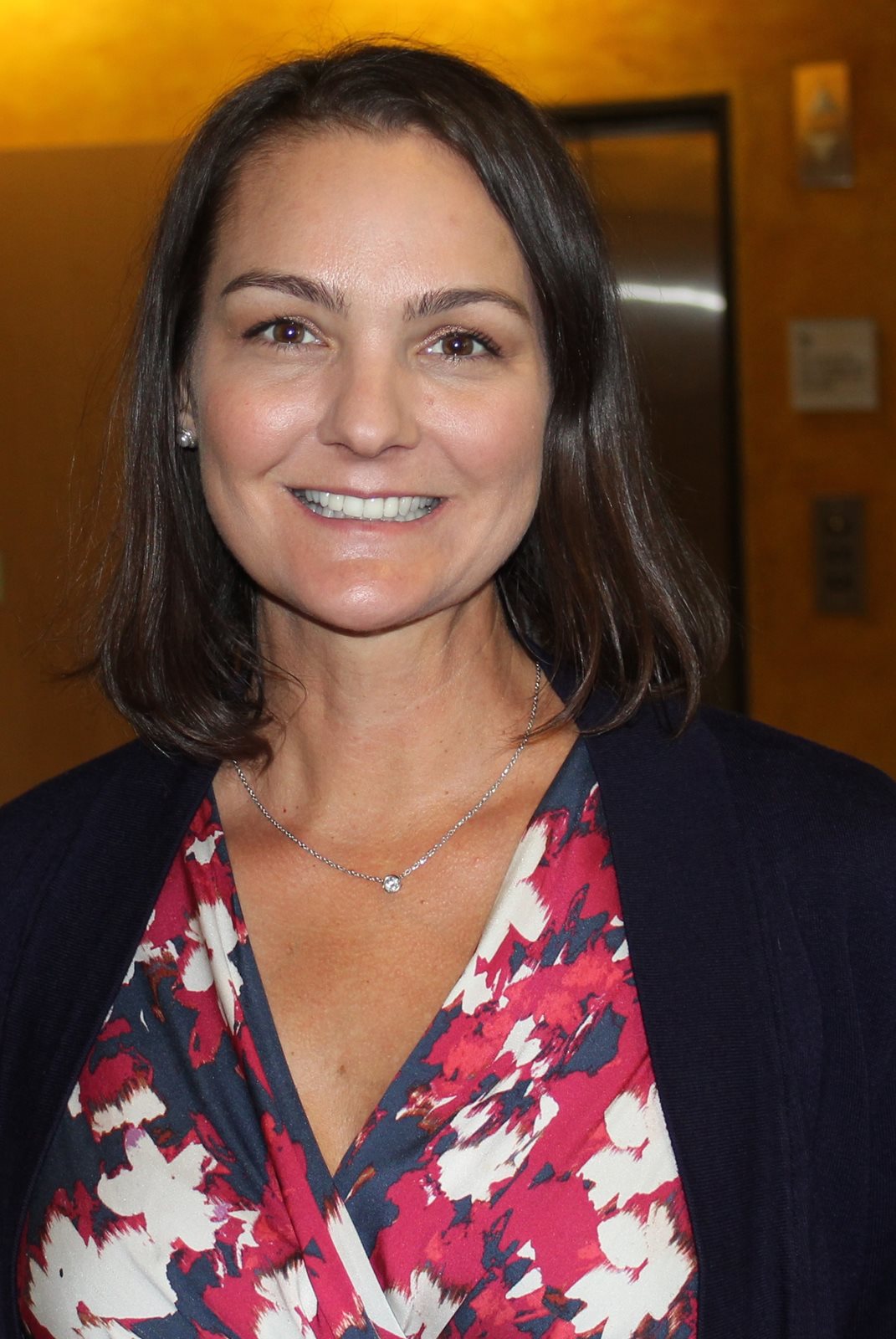
“Restorative justice isn’t punishing,” she says. “Restorative justice is teaching.”
The Bothell Youth Court was established as an alternative to routine municipal court appearance where teens could walk away with a big fine but not much else. The youth court gives first-time, offending 16- and 17-year-olds the opportunity to have the charge dismissed after six months, if they follow the court’s guidance.
The court is a partnership of the Bothell Municipal Court, University of Washington Bothell and Northshore School District. The court meets once a month in the city courtroom. Teens take the role of judge, jury and advocates (they don’t call them prosecutors or defense lawyers.) The No. 1 goal is getting someone to change their behavior.
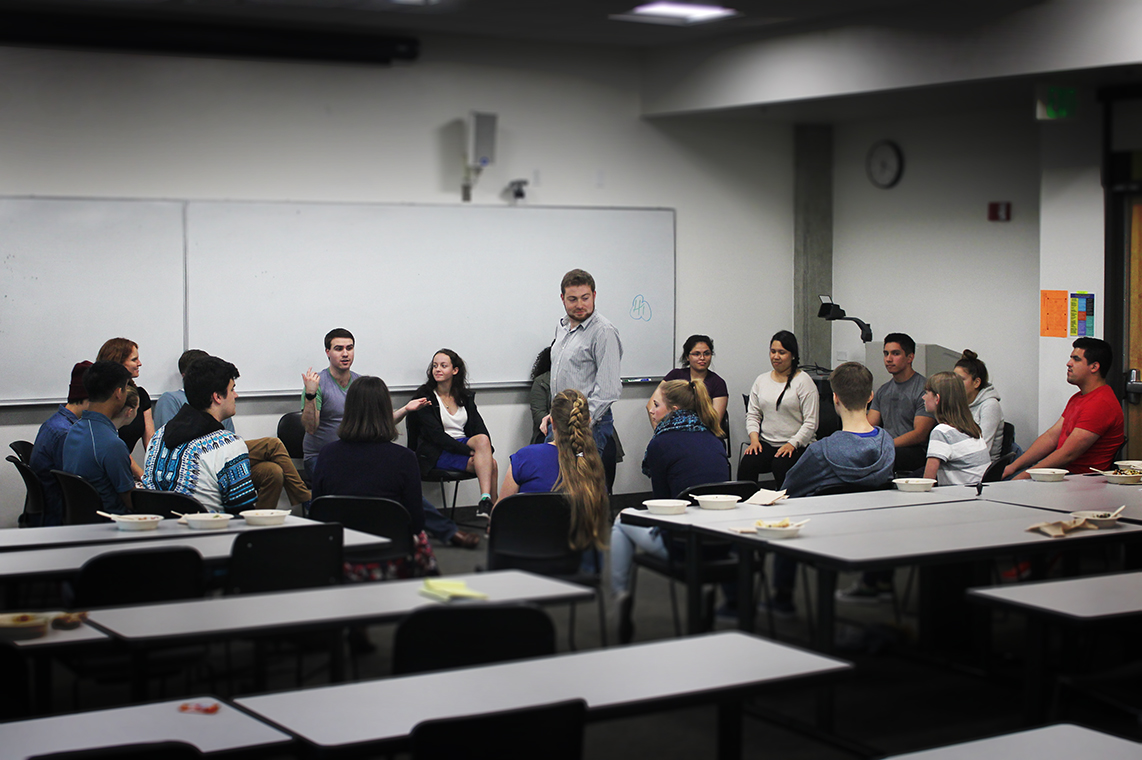
“They’re not going to change unless they have buy-in. If they feel you understand their story,” Gehlsen says, “they want to change.”
In the future, Bothell Youth Court might be expended beyond traffic offenses, says Walsh. Gehlsen has a goal of bringing in younger students – all the way down to elementary school _ not as jurors, but to be mentored and learn about restorative justice.


